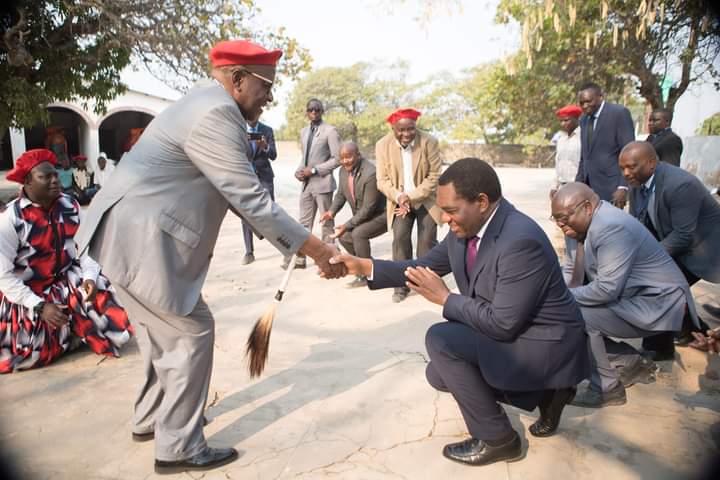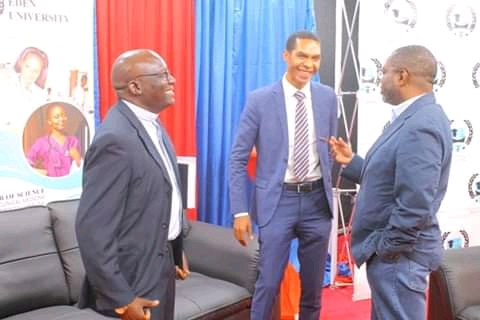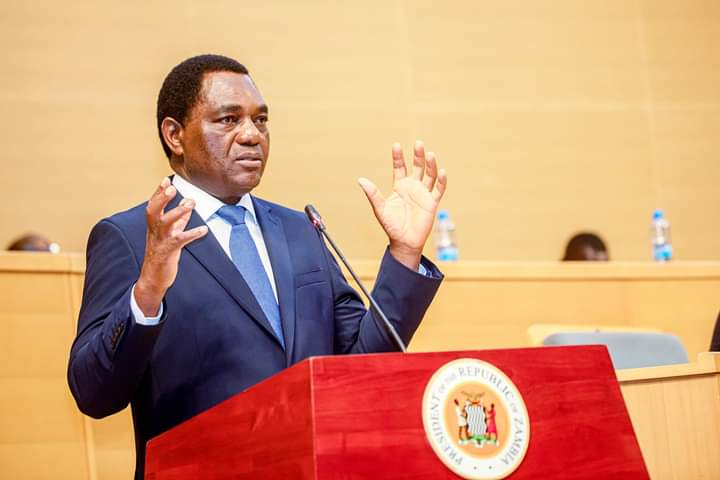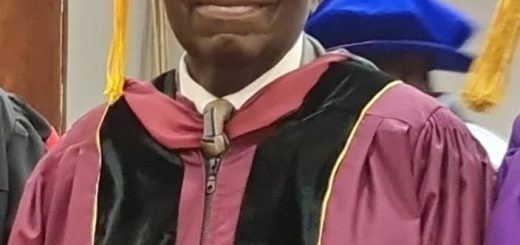Zambia: Incessant Calls for Barotseland Independence
Notice: Undefined index: catFilterList in /home/zambi/public_html/wp-content/plugins/wp-likes/api.php on line 243

Henry Kyambalesa
Zambia:
Incessant Calls for Barotseland Independence
By Henry Kyambalesa
January 19, 2024 (Friday)
1. Introduction:
In this article, I wish to comment on incessant calls by the Barotse Freedom Movement (BFM), the Barotse Royal Establishment (BRE), the Barotseland National Council (BNC), and the Movement for the Restoration of the Barotse Agreement (MOREBA) intended to secure the secession of Weste¬rn Province from the Republic of Zambia.
Advocacy for secession by any segment of the citizenry is, indeed, a thorny, complex and unpleasant issue for our beloved country. But like all other serious national issues facing us, we need to summon our wisdom in find¬ing a lasting and peaceful solution to the issue.
In the ensuing sections, I wish to make a few observa¬tions relating to the issue. Specifically, the following constitute the corpus of the remainder of the article: (a) the central issue bolstering the advocacy for secession; (b) the superfluous nature of the secessionist sentiments; and (c) amicable resolution of the issue.
2. What Is the Central Issue?:
I believe the main issue which has continued to invoke secessionist sentiments in Western Province can be found in Clauses 2 and 3 of Article 4 of the Barotseland Agreement of 1964 titled “The Litunga and His Council,” which provides for the following:
“(2) The Litunga of Barotseland, acting after consultation with his Council as constituted for the time being under the customary law of Barotseland shall be the principal local authority for the government and administration of Barotseland.”
And
“(3) The Litunga of Barotseland, acting after consultation with his Council, shall be authorised and empowered to make laws for Barotseland [with respect to issues cited in the Agreement].”
3. Secession Is Not Necessary:
Zambians, by and large, believe in the devolution of power to the country’s 10 provinces so that local people can be afforded the oppor¬tunity to make their own decisions on impor¬tant issues which affect their lives. They are generally commit¬ted to the idea of creating semi-autonomous regions, and a federal or central gove¬rnment that will wield limited powers and perform a limited number of func¬tions.
This kind of political dispensa¬tion may well be a more prudent compro¬mise to the secession being contem¬plated by my traditional cousins in Western Province.
Besides, we are all essentially one and the same people, although the majority of our fellow citi¬zens identify themselves as belong¬ing to one or two of our country’s seventy-three (73) tribes. In shorthand, we are all members of the Zambian family. And recogni¬tion of our oneness has, no doubt, been the linchpin of the enhanced and unmat¬ched national unity which our coun¬try has enjoyed since its inde¬pen¬dence on October 24, 1964.
Moreover, secession in an era of integration is counter¬produc¬tive at best. Integration of sovereign states has been one of the leading aspirations of socioeconomic policy worldwide over the last sixty years, so much so that we can appro¬priately describe the era as the era of integ¬ration.

President Hakainde Hichilema paying a curtesy call on The Litunga in August 2023
One would be amiss not to cite the numerous motivations for such integration.
The primary rationale for economic integra¬tion derives not only from eco¬nomic considerations; rather, it emanates from social, secu¬rity, techno¬logical, and political factors as well. At the political level, for example, the basic motivation for integration, or at least economic coopera¬tion, springs from the assump¬tion that the process of socio-economic development requires some form of international coopera¬tion or inter¬dependence.
At the techno¬logical level, a country may, as insinuated in the SAP-EM (1992:29) journ¬al, deci¬de to inte¬grate with others in order to gain unrestrained and protract¬ed access to a larger market for any forms of advanced technol¬ogy which may be con¬ceived and/or devel¬oped in the country, as well as to bene¬fit from joint scientific and tech¬no¬logi¬cal develop¬ment efforts and progra¬mmes.
In the 21st century, Afri¬can governments particularly should not ex¬pect to make any headway in their quest for enhanced socioeconomic deve¬lopment if they cannot briskly integrate their countries’ national economies.
The enor¬mity of development hurdles facing much of the continent—including limited domestic markets, inaccessi¬ble foreign markets, lack of investment capital, and unfavourable terms of trade with industrial¬ised nations—certainly call for what may be referred to as “south-south economic cooperation” if they are to rid their coun¬tries of what Bill Clinton (2000) characterised as the “astonishing poverty” currently facing the continent before the end of his two-term tenure as U.S. president in 2001.
In shorthand, meaningful socioeconomic development in Africa is, as African heads of state and government have unanimously concluded (OAU, 2000), “contingent upon the integration of [the continent’s national] … eco¬nomies.”
Let us now turn to savant P. S. Mistry (2000:570&571) for an observation that provides a general rationale for African countries particularly to relentlessly seek stronger and permanent membership in regional economic blocs, and simulta¬neous¬ly work to¬wards consolidating the operations of the “African Union”—proc¬laimed in Libya in March 2001, assented to by member-countries in Ethiopia in May 2001, created in Zambia in July 2001, and formally launched in South Africa in July 2002—to replace the Organisation of African Unity (OAU):
“African countries no longer have the luxury of avoid¬ing the imperatives [associated with] … integration, which is inescap¬able for most of them if they are to … [succeed in their socioeconomic pursuits and endeavors]. On their own, they will not be able to arrest and reverse the slide toward marginalisation in the global economy … and to realise their potential to become more efficient and competitive economies.”
Overall, societal members worldwide have become true beli¬evers in the concept of “strength in numbers,” or “in unity, there is greater strength.”
4. Resolution of the Issue:
There are a number of feasible ways and means by which the demands for secession can be resolved. State Counsel John Sangwa has called for a spirited national debate on the issue, and for ultimate subjection of the issue to a referendum.

Council of Churches in Zambia (CCZ) General Secretary (GS) Canon Emmanuel Chikoya (Left) with Electoral Commission of Zambia (ECZ) Chief Electoral Officer (CEO) Patrick K. Nshindano (Centre) and Constitutional Lawyer, State Counsel John Sangwa (Right) at Prime Television Zambia (PTZ) studio after an Oxygen of Democracy interview anchored by Alexander Musokotwane in Kabangwe, Chibombo District of Central Province in Zambia, a few weeks before Gerald Shawa’s Media House was closed
Another approach is for the incumbent Republican President to cons¬titute a “Baro¬tse Commission of Inquiry,” whose terms of reference should be to conduct an intensive study of the issues involved, the general feelings of the Lozi people about the agitation for secession from Zambia, the general feelings of the Mbunda and Mankoya people (among other tribes in Western Province) about the secession issue, and, among other things, the options for resol¬ving the issues surrou¬nding the 1964 Barot¬seland Agreement.

In January 2024, President Hakainde Hichilema told a meeting of Permanent Secretaries at Mulungushi International Conference Centre Kenneth Kaunda New Wing (MICC-KKNW) that Zambia remains a unitary state with a categorical no to Barotseland as a Country.
Moreover, there is a need for serious consideration of ethnic interests by the national government in the distribution of power, educational facilities, health services, infrastructure, and other essential public services and facilities.
Additionally, Parliament needs to seriously consider the prospect of amending the Republican Constitution (Amendment) 2016 to include Articles suggested in the Addendum to this article.
5. Conclusion:
Secessionist sentiments are a highly divisive issue; the longer they are sustained, therefore, the more they are likely to create an atmosphere of mistrust and hostility between the Lozi people and the other 72 Zambian tribes, with whom they have peacefully coexisted over the last 59 years.
Our beloved country has been a unitary and indivisible sovereign state since its inception in 1964. Each and every one of us, therefore, has a civic and moral obligation to guard ourselves against the temptation of dividing it on ethnic lines. We need to continue to exercise our civic and moral duty to be patriotic and loyal to our beloved country, and to foster national unity as well as live in harmony with other members of Zambian society.
Incidentally, our fellow citizens in Western Province need to decide whether or not they prefer to be governed by a monarchical regime without any viable mech¬anism for peacefully replacing incompe¬tent leaders.
Besides, they need to decide whether or not they desire to become “subjects” in a Kingdom without the basic rights and freedoms currently accorded to them as “citizens” of the Republic of Zambia.
And, to reiterate, the secession which my traditional cousins are seeking is not feasible in the long run without first gauging the general feelings (about the secession issue) of the Mbunda, Mankoya, Mbwela, Kwangwa, and other tribes in Western Province, and the Lozi people who have intermarried across provincial boundaries.
—————————————
Addendum:
Petitions for Secession
In the light of the ongoing saga relating to secessionist sentiments in Western Province, there is a need for Parliament in our beloved country to seriously consider the prospect of including a Constitutional proviso relating to Petitions for Secession.
This could be placed under PART XX of Republican Constitution (Amendment) of 2016, and the current PART XX (that is, General Provisions) could become PART XXI and the Articles under it re-numbered accordingly as Article 264 through Article 281.
Articles under the new PART XX (that is, Petitions for Secession) could be numbered as follows:
PART XX:
PETITIONS FOR SECESSION
Any district or province that will seek to secede from the Republic of Zambia will abide by the following requirements:
[Article 258]
(1) Petitioners will prepare a hard copy of their petition, which will include the following:
(a) The petitioners’ office and/or postal mailing address(es);
(b) The basis of the petitioners’ authority to seek secession from the Republic of Zambia on behalf of the district or province;
(c) A detailed rationale for seeking secession;
(d) Authentication of the petition by the petitioners by means of their full names and signatures, including the date of the authentication.
(2) A complete copy of the petition will be submitted by the petitioners to the Minister of Justice in advance of any further actions of compliance with the requirements prescribed in this Constitution.
[Article 259]
(1) The petitioners will, in accordance with existing laws relating to the holding of public meetings, convene public meetings at selected locations in the district or province for which secession is sought, at which the content of the petition will be publicly explained by the petitioners.
(2) The names of supporters, as well as their signatures in support, of the petition will be collected by the petitioners at the end of each public meeting.
(3) The total number of all the names and signatures ultimately collected will be at least one-fiftieth (1/50) of the estimated population of the district or province seeking to secede from the Republic of Zambia.
(4) Each of the signatories to the petition will be assumed to be at least eighteen (18) years of age, to have understood the content of the petition, and to have been resident in the district or province seeking the secession for at least five (5) years.
[Article 260]
(1) The petitioners will submit the names, signatures and addresses of signatories to the Minister of Justice for sample-verifications of the existence of signatories and any other relevant details relating to the signatories.
(2) The Minister of Justice will acknowledge receipt of the signed copies of the petition and information about signatories within six (6) months from the date of receipt of the petition.
(3) The Minister of Justice will reject the petition if any of the particulars relating to the signatories will be found to be forged, fudged, or inaccurate, and will communicate the outcome of the sample-verifications to the petitioners within six (6) months from the date of acknowledgment of the receipt of the petition.
(4) In the case of forged or fudged information relating to the signatories, petitioners will be prosecuted, the nature of the punishment of which will be prescribed by an Act of Parliament.
[Article 261]
(1) A petition that will pass the verification process will be submitted by the Minister of Justice to Parliament within six (6) months from the date of acknowledgement of the petitioners’ submission.
(2) Parliament will render its decision regarding the petition within one (1) year from the date of receipt of the petition.
(3) Parliament’s decision will be final, and will be binding on both the Zambian government and the petitioning district or province.
(4) In the case of positive consideration of the petition by Parliament, Parliament will, within one (1) year from the date of its decision, set up the process of separation of the district or province from the Republic of Zambia, including details relating to assets to be shared between the Republic of Zambia and the new country, and the date and time of the actual separation.
(5) In the event of a rejection of the petition by Parliament, the petitioners will have the opportunity to submit a revised petition to the Minister of Justice after five (5) years from the date of a previous denial, and as many times as they will wish.
[Article 262]
Any other means of seeking to secede from the Republic of Zambia other than what is prescribed in this Constitution will be treated as a treasonable offence.
[Article 263]
(1) The costs associated with the preparation of petitions, the holding of public meetings, and the submission of petitions to the Minister of Justice will be borne by the petitioners without any financial and/or material support from foreign governments, organisations and/or individuals, or from organisations and/or individuals outside the district or province seeking to secede for the Republic of Zambia.
(2) If the Minister of Justice will determine that the petitioners received financial and/or material support from foreign governments, organisations and/or individuals—or from organisations and/or individuals outside the district or province seeking to secede for the Republic of Zambia—to bolster the preparation of petitions, the holding of public meetings, and/or the submission of petitions to the Minister of Justice, he or she will reject the petition.

















